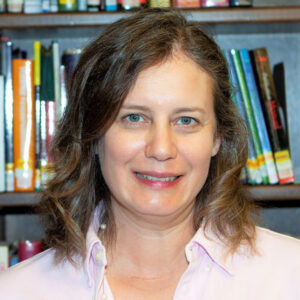At the Michigan School of Psychology, we are proud to offer an Applied Behavior Analysis (ABA) certificate through dual enrollment with our Master’s Program or as a stand alone program for students who already have an MA. The certificate program is an wonderful asset for those looking for educational and professional development in the field of human behavior. Most of MSP’s ABA certificate alum go on to become Board Certified Behavior Analysts (BCBA) but there are plenty of other career paths that benefit from the certificate, learn more about those here. Recently Elizabeth Romano, MA, BCBA, LBA, a MA with ABA certification graduate from the class of 2020 and a current PsyD1 student, sat down and answered some questions to about her experience in the ABA program at MSP.
What led you to study psychology and Applied Behavior Analysis?
When I was an undergraduate student, I worked on a sexual assault crisis hotline and found that I was bringing the work with me everywhere I went. So when I graduated, I felt I would have a hard time as a clinical psychologist, even though that was a dream. Instead, I studied for a masters and doctorate in developmental psychology. For various reasons, I did not get my degree and have spent nearly 20 years as a stay at home mother and a yoga teacher. In 2018, a friend asked me what was stopping me from following that long ago dream. Within a few months, I was beginning my master’s in clinical psychology with certification in ABA at MSP, the beginning of living a long standing dream.
What do you hope to do with your degree?
I have many ideas about what I would like to do with my degree, but certain things I know I would like to pursue. I want to be a therapist and I want to help therapists, through supervising, mentoring, teaching, really any way I can.
Why’d you choose MSP?
MSP offers several things that I hadn’t found elsewhere: Practitioners teaching the skills, small class size which means a closer relationship with our professors, a humanistic approach, and a nurturing community.
What made you decide to pursue an MA with concentration in ABA*?
One of the aspects of ABA that I appreciate is that behavior serves a purpose. This purpose may not always be consciously understood, yet there is a purpose to it. I also appreciate that sometimes the simplest outlook into a difficult behavior is through the environment. For example, if walking is valuable to me and yet I am having a hard time actually doing it, I can put my walking clothes and shoes out to remind me that the first thing I want to do in the morning is go for a walk and to make this action easier than if I hadn’t put them out.
What stands out to you about MSP’s ABA Program?
The first thing that stood out to me is the support of the professors, in addition to how much thought and effort they put into the coursework. The coursework provides a fantastic foundation for taking the BCBA certification exam. Ultimately, what stands out is the lifelong support network I have developed with my fellow cohort members from the ABA program.
How do you think receiving your certification in ABA will help you reach your career goals?
The toolkit I have from my ABA certification is full of resources and provides options to me in working with clients. ABA reminds me to look at the individual’s environment, which includes their relationships as well as their physical surroundings. I also learned more about body language and what it expresses, through my work with children who were diagnosed with Autism and communicated non-vocally, possibly through an augmented communication system.
What advice would you give someone who is thinking about applying to the certificate program?
There are several things I would recommend prior to application, for example setting up a time to discuss the program with faculty. And then once in the program, I would recommend practicing the terminology with flashcards, or Quizlet, whichever works best for you. I would also recommend during field work hours, that the student keeps track of their hours in multiple formats and with as much detail as possible. One of those details could include taking notes during supervision with specific dates, times and with whom the supervision occurs. I would recommend thinking through examples for each of the concepts in order to better understand them. Finally, I would recommend that a student trust the process and ask questions when they come up.